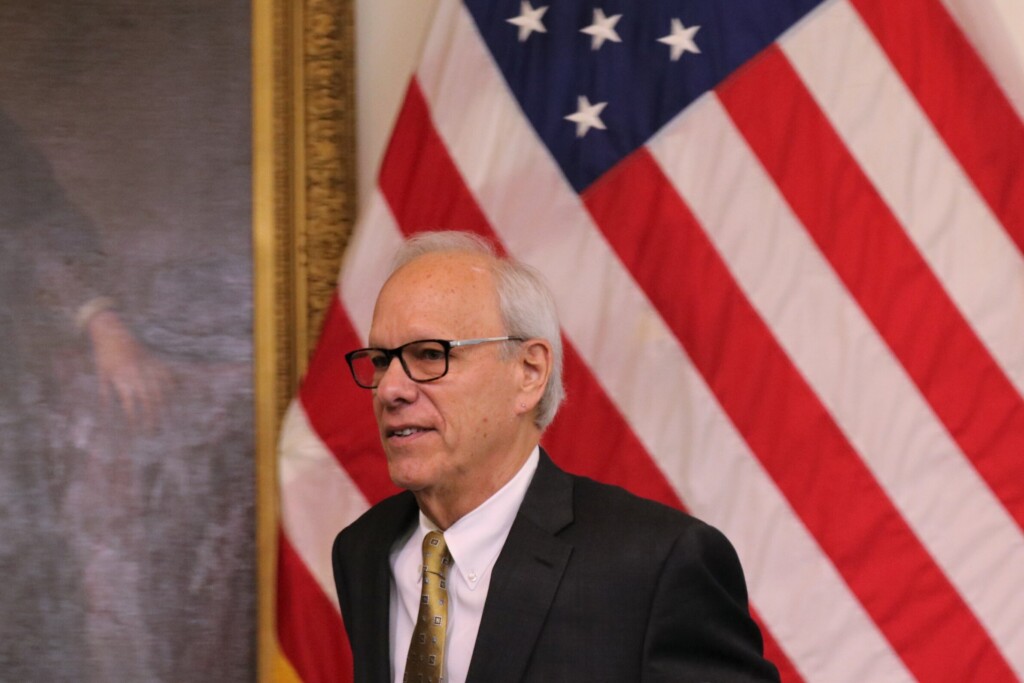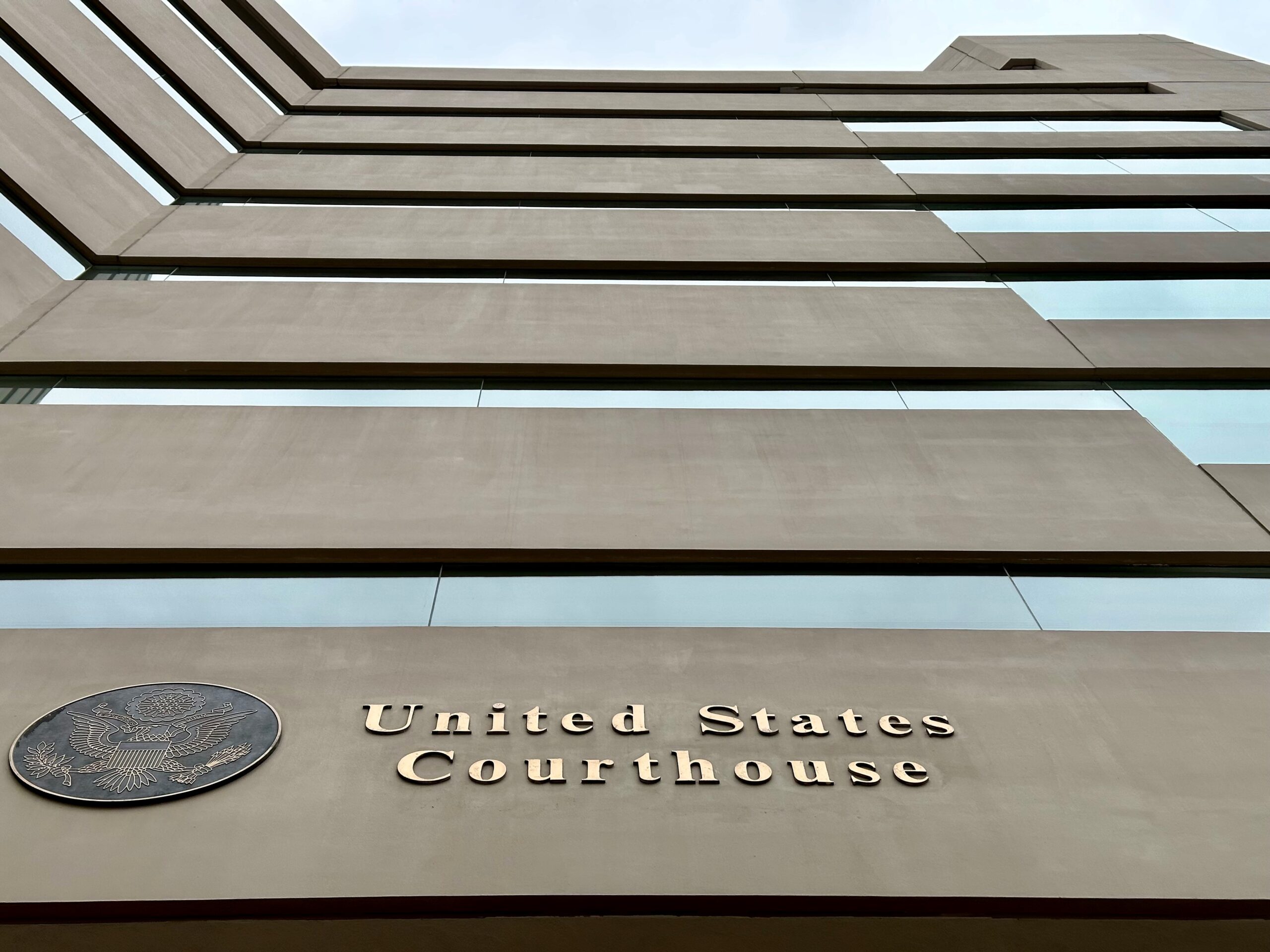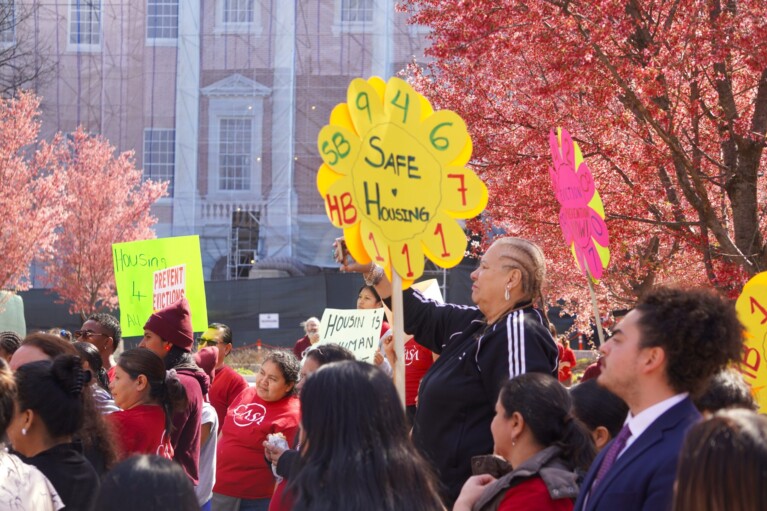Pinsky Dusts Off Public Financing Proposal for Legislative Elections

The first time state Sen. Paul G. Pinsky (D-Prince George’s) introduced a bill to create a public financing system for legislative elections, he was seen as a left-wing backbencher in Annapolis. George W. Bush was president of the United States. And public financing for campaigns was mostly a foreign concept.
Today, Pinsky is the powerful chair of the Senate Education, Health and Environmental Affairs Committee, with oversight and influence over state election laws. The U.S. is three presidents removed from Bush. And public financing, which has been available for gubernatorial campaigns for three decades, has also taken hold in some of Maryland’s largest jurisdictions.
Now, for the second year in a row following a long hiatus, Pinsky has reignited the debate over public financing for House and Senate elections, with a bill that would give candidates the option of receiving public contributions from the Fair Campaign Financing Fund if they meet certain low-dollar fundraising thresholds and agree to spending limitations.
“This is maybe not to begin but to continue the conversation,” Pinsky said Wednesday.
Pinsky’s legislation was one of nine election bills the Education, Health and Environmental Affairs Committee heard Wednesday — a roster that included a Republican voter ID bill and another GOP bill requiring regular audits of mail-in ballots.
Even as the concept of public financing has grown more mainstream across the country — and in Maryland, where Baltimore City, Montgomery, Howard, Baltimore and Prince George’s counties are in various stages of employing it or adopting it — state lawmakers have been reluctant to embrace that reform for themselves. Two decades ago, Maryland legislators were unmoved even after a high-profile visit from then-U.S. Sens. John McCain (R-Ariz.) and Russ Feingold (D-Wis.), the architects of the groundbreaking federal Bipartisan Campaign Reform Act, to promote the idea.
Five states now have some form of public financing for their legislative elections: Arizona, Connecticut, Hawaii, Massachusetts and Minnesota. Arizona and Massachusetts adopted their laws around the same time Pinsky was first proposing his legislation, though both states’ programs encountered controversy and funding hurdles initially.
The state’s public financing program has only been utilized by a handful of high-profile gubernatorial candidates through the years. Gov. Lawrence J. Hogan Jr. (R) used it during his first campaign, in 2014, and former Prince George’s County Executive Rushern L. Baker III (D) is in the program this year.
Last year, as they considered legislation to firm up funding for the state’s Fair Campaign Financing Fund, lawmakers debated extending the program to races for comptroller and attorney general as well. And now Pinsky and good government advocates are arguing that his legislation to offer the option to House and Senate candidates is as salient as it ever was, diminishing the influence of big donors on political campaigns.
“It’s important if you don’t want to spend all of your time dialing for dollars,” he said. “I think it will give a voice to the voiceless.”
Emily Scarr, the director of Maryland PIRG, called using public dollars to help fund legislative campaigns “an investment in our democracy [that] is critical for building faith in our government.”
But some of Pinsky’s committee colleagues expressed skepticism. Sen. Mary Beth Carozza (R-Lower Shore) said she worried that candidates who decide not to take public financing could face backlash from the voters.
“The concern I have with the legislation, at least as it’s presented, is that those who don’t participate in this program, is that they’re [portrayed as being] in ‘the pockets’ of high-level donors,” she said.
Pinsky’s bill, if it passes, would not take effect until next Jan. 1, after the completion of the 2022 elections.
The committee heard a second bill concerning public financing Wednesday, sponsored by Senate Judicial Proceedings Chair William C. Smith Jr. (D-Montgomery), which would set up a vote on a proposed constitutional amendment to solidify the state’s public financing system and give Marylanders the right to access campaign finance records.
The legislation has two major provisions: One establishes that every Marylander has the right to know information in an open, timely, and transparent manner about fundraising and expenditures by state and local campaigns and ballot questions. The proposed constitutional amendment also establishes that a publicly financed election is a right of the people.
Smith said the idea behind the bill is to codify these provisions in the state constitution in case federal court cases weaken campaign finance laws. Good government advocates used as an example the impact of the U.S. Supreme Court’s 2014 McCutcheon v. FEC decision, which effectively knocked out Maryland’s provision limiting an individual’s aggregate campaign contributions to all candidates to $10,000 per election cycle. Now, an individual can give to an unlimited number of campaigns.
“This is basically preventing a backslide,” said Jared DeMarinis, director of the Candidate and Campaign Finance Division. “If a person wants to get rid of a disclosure law, they would have to go up against the [state] constitution.”
Smith sought to assure his colleagues that the measure wouldn’t impede the legislature’s ability to set election law.
“This amendment doesn’t micromanage,” he said. “You’re in charge of the level of disclosure we have, now and in the future.”
The other election bills the committee heard Wednesday were:
- Senate Bill 285, from Sen. Michael J. Hough (R-Frederick), would double the maximum civil penalty for destroying or removing a campaign sign;
- SB 329, from Sens. Jeff Waldstreicher (D-Montgomery) and Bill Ferguson (D-Baltimore City), would prohibit the possession of firearms at polling places and in the surrounding areas;
- SB 413, from Sen. Charles E. Sydnor III (D-Baltimore County), a bill that establishes certain voting rights protections in Maryland county and municipal elections;
- SB 532, from Sen. Justin D. Ready (R-Carroll), which would require voters to produce some form of government-issued ID at a polling place;
- SB 544, from Ready, which would prohibit a person from knowingly voting in general elections in two different states in the same year, and would establish possible avenues of prosecution for Maryland officials;
- SB 738, from Sen. Bryan W. Simonaire (R-Anne Arundel), which would require the state and local boards of elections to conduct regular audits of mail-in ballots; and
- SB 742, from Sen. Mary L. Washington (D-Baltimore City), which would authorize the state and local boards of elections to conduct an automated software audit after a statewide election.
Editor’s note: This story has been updated to include the correct Supreme Court decision that impacted aggregate campaign contribution limits in Maryland.




 Creative Commons Attribution
Creative Commons Attribution